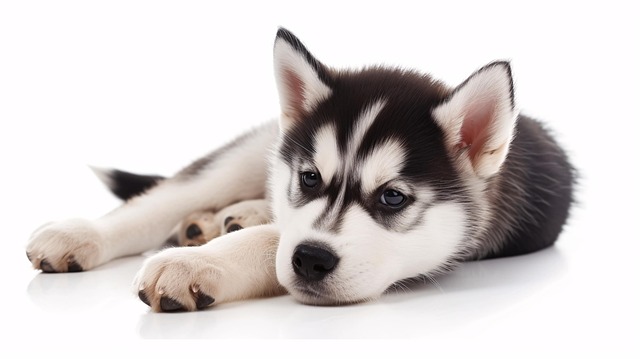
What is glaucoma in a dog?
You might notice your dog squinting more at mealtime or avoiding bright sunlight—these small changes could be early signs of a serious eye condition.
If you’ve ever held your fluffy new puppy and wondered if they need “special” shampoo—instead of just using your own or your adult dog’s—the answer is a resounding yes. Puppies aren’t just tiny adult dogs; their skin is far more delicate, with a different pH balance and thinner protective layers that demand gentler care. For new U.S. dog owners, especially those bathing puppies in apartment tubs or sinks, using the right shampoo keeps bath time safe, comfortable, and free of irritation.
Puppies’ skin has a pH level of around 7.5, which is more alkaline than adult dogs (6.2–7.4) and much higher than human skin (4.5–5.5). Using human shampoo disrupts this balance, stripping away natural oils that protect against dryness and bacteria. Adult dog shampoo often contains stronger detergents or fragrances that are too harsh for a puppy’s sensitive skin. My neighbor made this mistake with her 10-week-old Golden Retriever, Ruby—after using an adult dog shampoo, Ruby developed a red, itchy rash that cleared up only when the vet recommended a puppy-specific formula. Special puppy shampoos are formulated to match their pH, use mild, non-irritating ingredients (like oatmeal or aloe vera), and skip harsh chemicals like sulfates, parabens, or artificial dyes that can cause discomfort.

When shopping, look for labels explicitly marked “puppy shampoo”—avoid vague terms like “gentle” unless they’re puppy-focused. Check the ingredient list: fewer, more natural ingredients are better. For apartment baths, prep a non-slip mat (puppies wiggle, and slippery surfaces stress them out) and lukewarm water (test it with your wrist—too hot or cold is painful). Use a small amount of shampoo, lather gently (avoiding their eyes and ears), and rinse thoroughly—leftover soap leads to itching. Keep bath time short (5 minutes max) and dry them off quickly with a soft towel. Reward them with a tiny treat afterward to turn bath time into a positive experience—positive reinforcement beats scolding for wiggling, which only makes them fear baths more.
Before taking your clean puppy outside (once fully vaccinated), confirm their rabies vaccine is up to date—all U.S. states require it. Always carry poop bags on walks: leaving messes in apartment parks or sidewalks isn’t just rude; cities like New York fine owners up to $200, and it keeps your community clean.
Puppies absolutely need special shampoo—it’s not a luxury, but a necessity for their delicate skin. With the right product and a calm approach, bath time will become a bonding moment instead of a hassle.

You might notice your dog squinting more at mealtime or avoiding bright sunlight—these small changes could be early signs of a serious eye condition.

Let’s set the scene: It’s a sweltering Phoenix afternoon—105°F outside—and you rushed your 2-year-old Lab mix, Cooper, on a quick walk to “get it over with.”

Let’s get real: You’re in your Miami apartment, watching your 3-year-old Corgi, Loki, struggle to climb the stairs to your second-floor unit.

Many dog owners brush off occasional scratching as just “dog behavior,” but persistent itching often signals something more—like a food allergy.

You might first notice your dog scratching more than usual—chewing at their paws until the fur looks thin, or rubbing their face against the couch nonstop.

Let’s be real: You’re standing in your Chicago apartment, watching your 3-year-old Beagle, Max, huff and puff just to climb onto the couch.